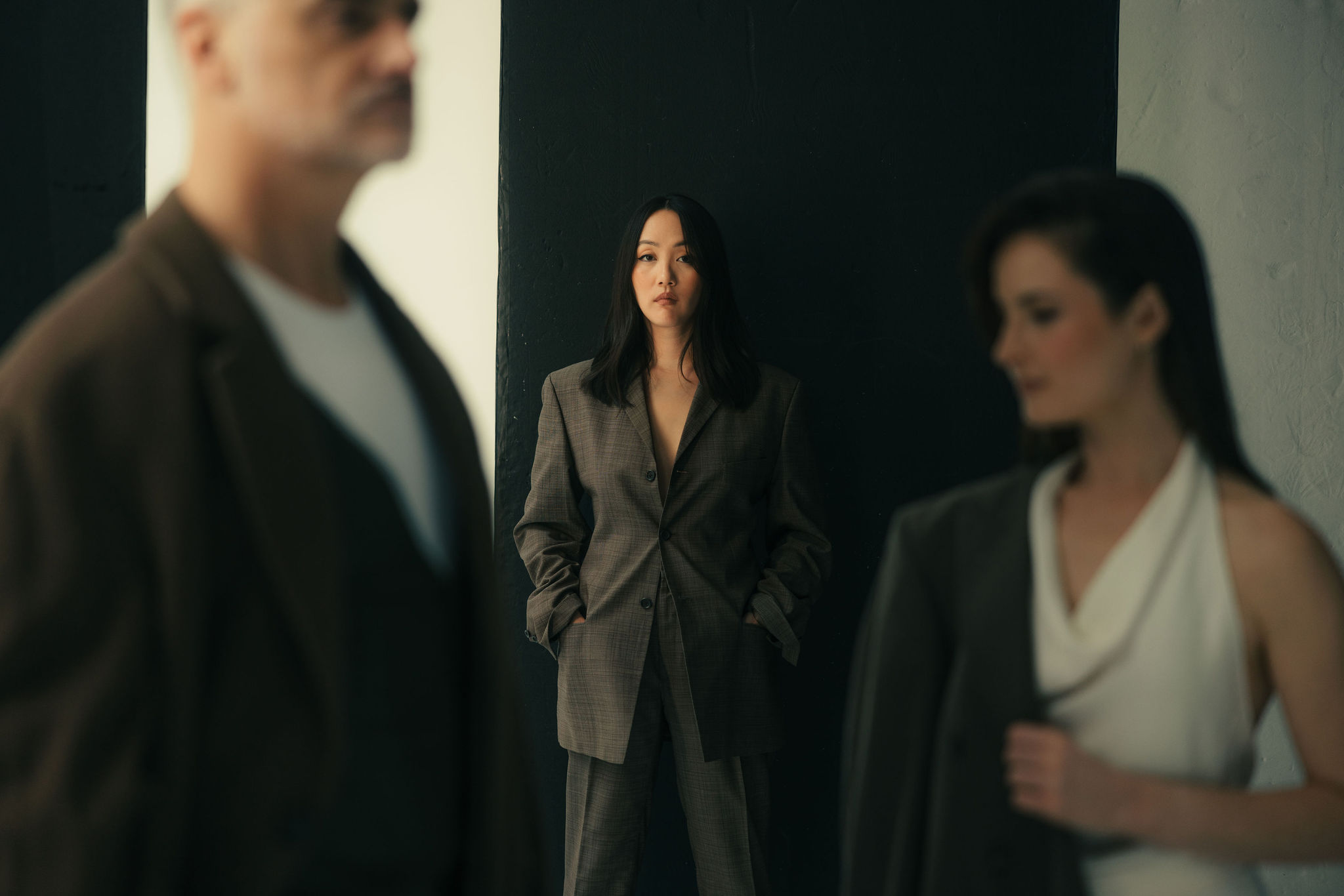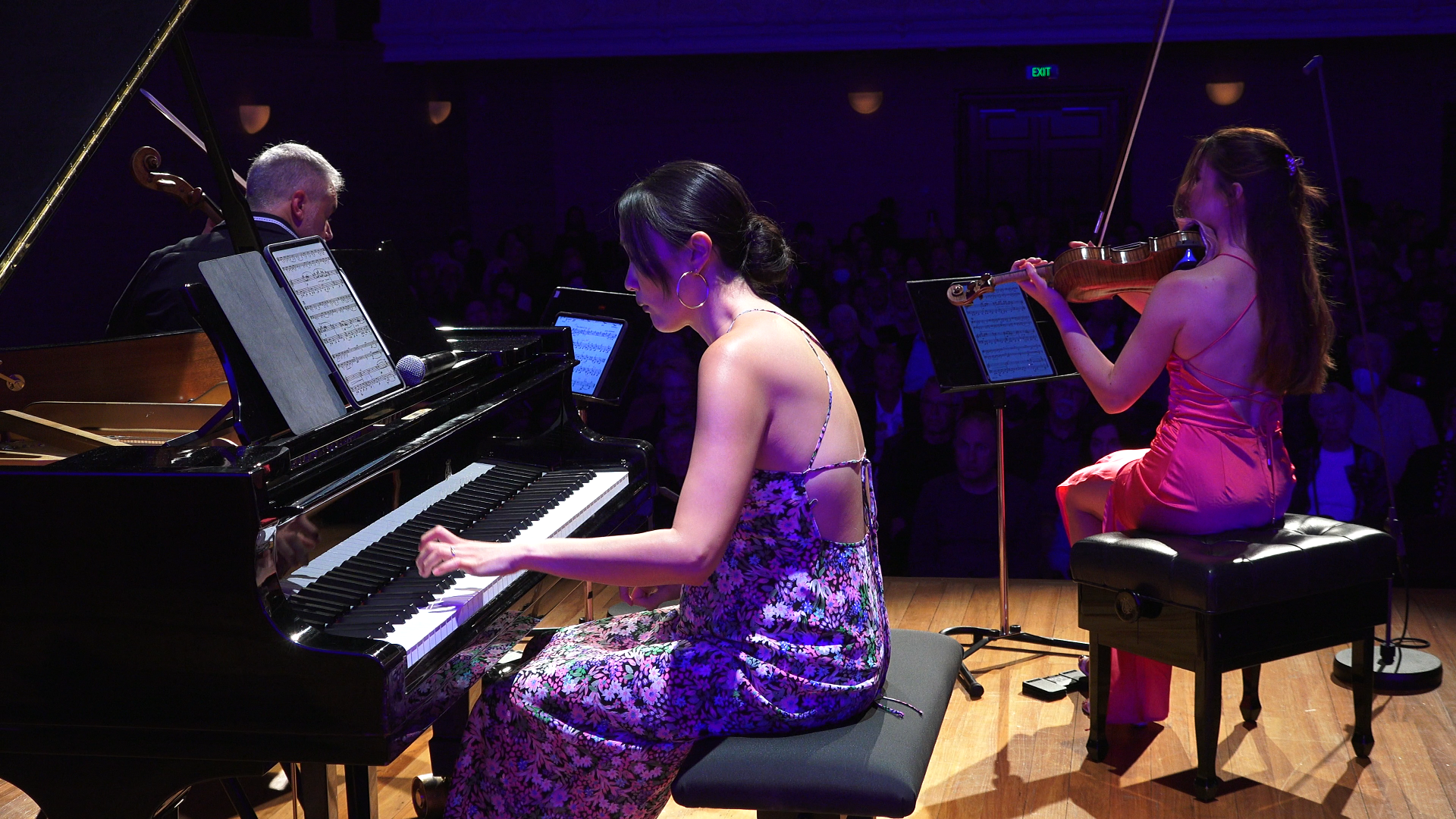In these unsettled times it somehow seems appropriate that Chamber Music New Zealand would plan to bring together one of the world’s outstanding clarinettists and the NZ Trio, thus facilitating the opportunity for performances of one of the seminal chamber works of the twentieth century – Quartet for the End of Time.
The work itself makes enormous demands on both players and audiences.
For the players the technical and emotional demands of the work demand performers of the calibre appearing in this performance while, with the inward and reflective elements of the work always to the fore, it demands that an audience take time to reflect upon the power of performance and our human condition throughout its majestic length.
Tuesday night’s performance bowed to all of these demands amply as each of the performers, together and individually, were obviously inspired to deeply memorable and enormously enriching commitment to their music.
Stephen Fisher, Manawatu Standard – 28th July 2016
In these unsettled times it somehow seems appropriate that Chamber Music New Zealand would plan to bring together one of the world’s outstanding clarinettists and NZTrio, thus facilitating the opportunity for performances of one of the seminal chamber works of the twentieth century – Quartet for the End of Time.
Composed by Olivier Messiaen while interred in a prisoner of war camp and premiered there in 1941 the unusual scoring of the work reflects the instruments available at the time.
The work itself makes enormous demands on both players and audiences.
For the players the technical and emotional demands of the work demand performers of the calibre appearing in this performance while, with the inward and reflective elements of the work always to the fore, it demands that an audience take time to reflect upon the power of performance and our human condition throughout its majestic length.
Tuesday night’s performance bowed to all of these demands amply as each of the performers, together and individually, were obviously inspired to deeply memorable and enormously enriching commitment to their music.
A work of this stature obviously dominates any chamber music performance but one cannot neglect the magic provided during the first half of the evening, where Bliss provided a stunning performance of Debussy’s Premiere rhapsodie, this followed by a lively performance of Milhaud’s Suite for Violin, Clarinet and Piano.
There May Be Light, especially commissioned for this tour and composed by Ross Harris, completed the programme.
While commanding interest itself with its innovatory approach to technique the work also provided a marvellous foretaste of the riches to come later in the evening.
Inspirational programming and performance indeed!
Stephen Fisher, Manawatu Standard – 28th July 2016

